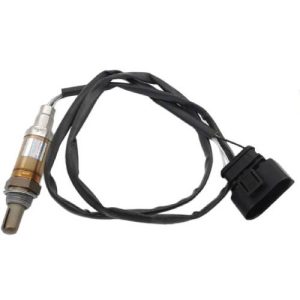Your cart is currently empty!
Why does the oxygen sensor not work, and what if the car oxygen sensor not work?
In the dynamic realm of automotive news, we delve into a common issue that many vehicle owners encounter – Oxygen Sensor Not Work. This article aims to demystify the reasons behind why an oxygen sensor might cease to operate and explores the potential consequences of such an occurrence. Buckle up for an enlightening journey through the intricacies of this vital automotive component.

Why Does the Oxygen Sensor Not Work?
Oxygen Sensor Not Work the reason is Sensor Age: Over time, wear and tear can compromise the sensor's accuracy and responsiveness.
Oxygen Sensor Not Work the reason is Contaminants: Contaminants such as oil, coolant, and fuel residues can coat the sensor, obstructing its ability to detect oxygen levels accurately.
Oxygen Sensor Not Work the reason is Physical Damage: Exposure to road debris or accidental impact can damage the sensor, rendering it inoperable.
Oxygen Sensor Not Work the reason is Faulty Wiring: Damaged or corroded wiring can interrupt the communication between the sensor and the Engine Control Unit (ECU).
What If the Car Oxygen Sensor Not Work?
Reduced Fuel Efficiency: A malfunctioning oxygen sensor can lead to an imbalanced air-fuel mixture, resulting in reduced fuel efficiency. You might notice more frequent trips to the gas station.
Increased Emissions: An ineffective oxygen sensor can cause the engine to run rich, leading to higher emissions of harmful gases like nitrogen oxides and carbon monoxide.
Poor Engine Performance: A non-functional sensor can disrupt the engine's combustion process, causing hesitation, rough idling, and decreased acceleration.
Check Engine Light: Modern vehicles are equipped with an onboard diagnostics system that triggers the "Check Engine" light when it detects issues, including a faulty oxygen sensor.
Seeking Solutions for Oxygen Sensor Not Work
Diagnostic Scan: If your vehicle's "Check Engine" light illuminates, promptly perform a diagnostic scan to identify the specific issue, which might include a Oxygen Sensor Not Work.
Professional Repair: Seek professional assistance from certified mechanics or auto repair shops to diagnose the exact cause of the malfunction and perform necessary repairs.
Regular Maintenance: Regular engine maintenance, including air filter replacement and spark plug checks, can contribute to the longevity of your oxygen sensor.
Conclusion
In conclusion, a Oxygen Sensor Not Work can have a ripple effect on your vehicle's performance, emissions, and fuel efficiency. Understanding the reasons behind its malfunction and the potential consequences empowers vehicle owners to take timely action. Prioritizing regular maintenance, prompt diagnostic scans, and seeking professional repair when needed ensures your vehicle operates optimally, aligns with emission standards, and offers a smoother, more eco-conscious driving experience. As responsible vehicle owners, we possess the knowledge and tools to keep our vehicles roadworthy and environmentally friendly.
That's what the Why does the oxygen sensor not work, and what if the car oxygen sensor not work is all about.






Leave a Reply